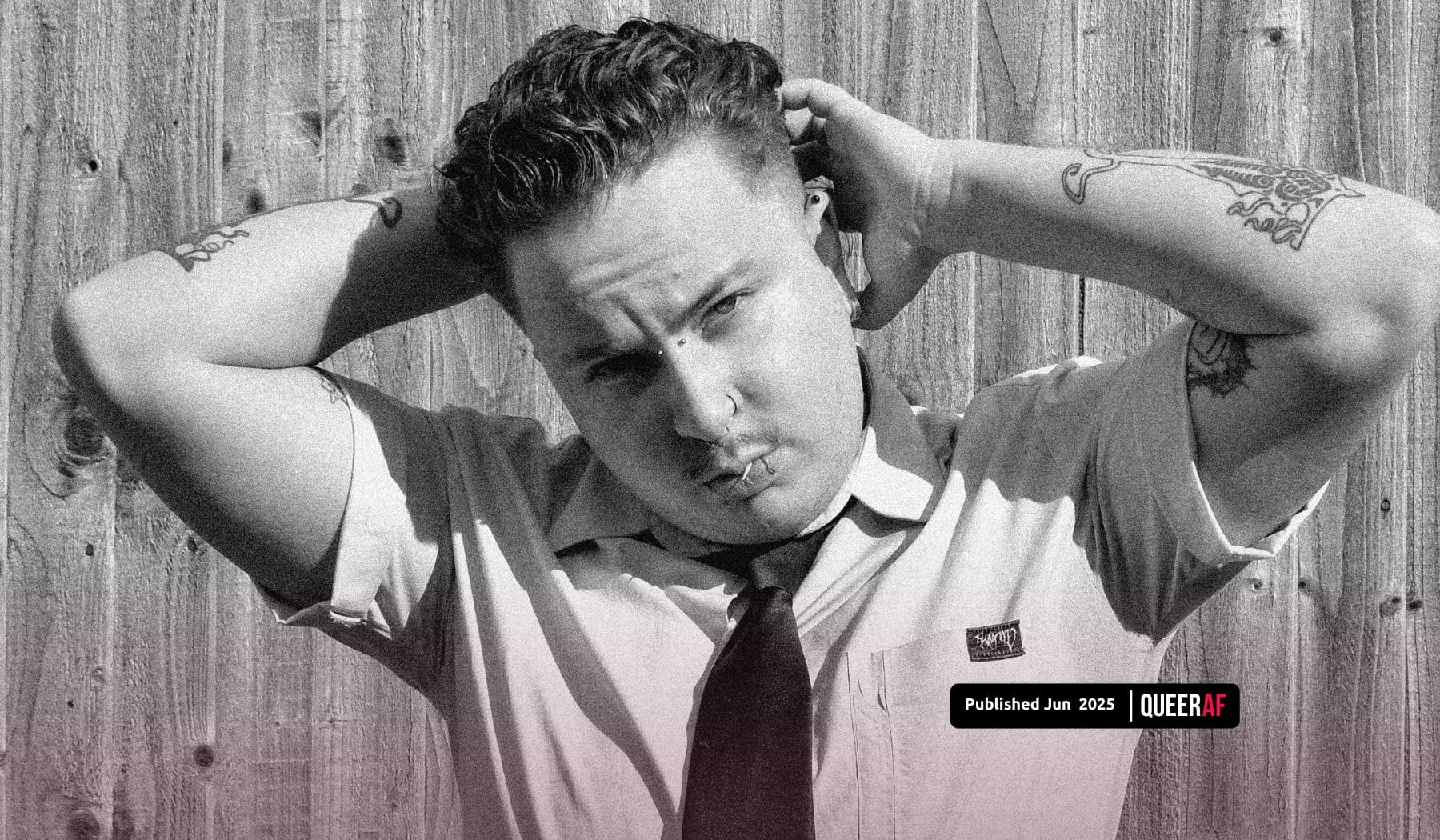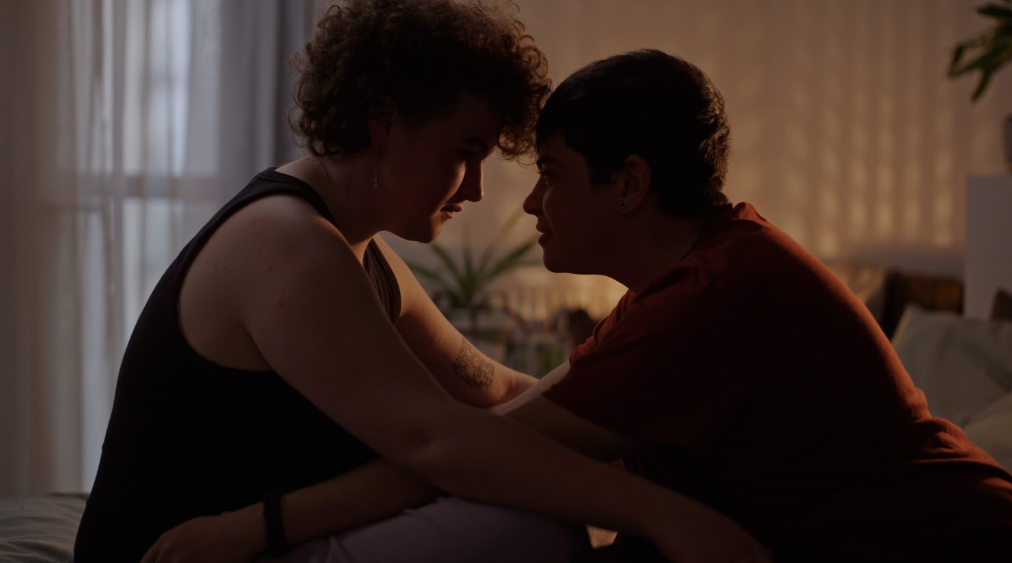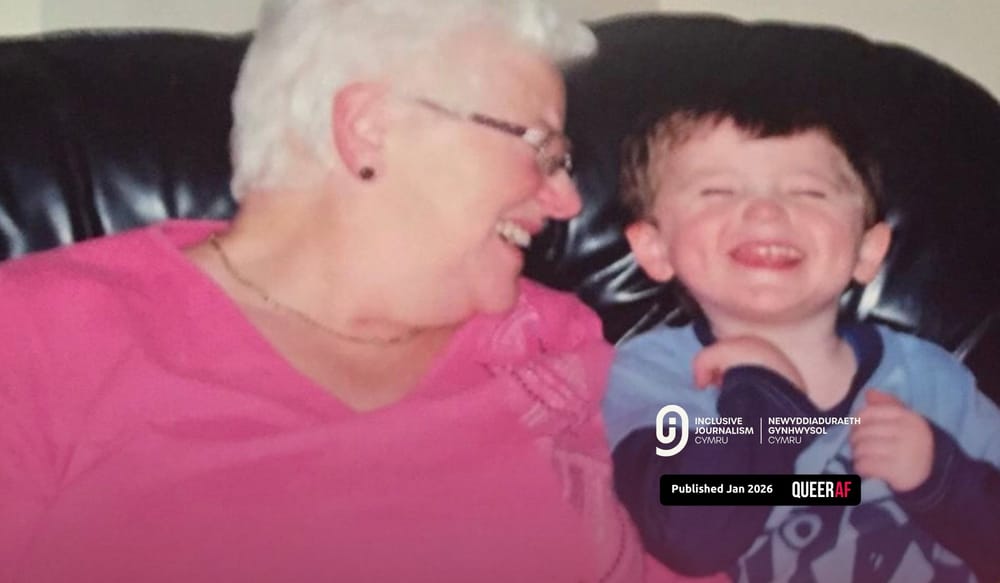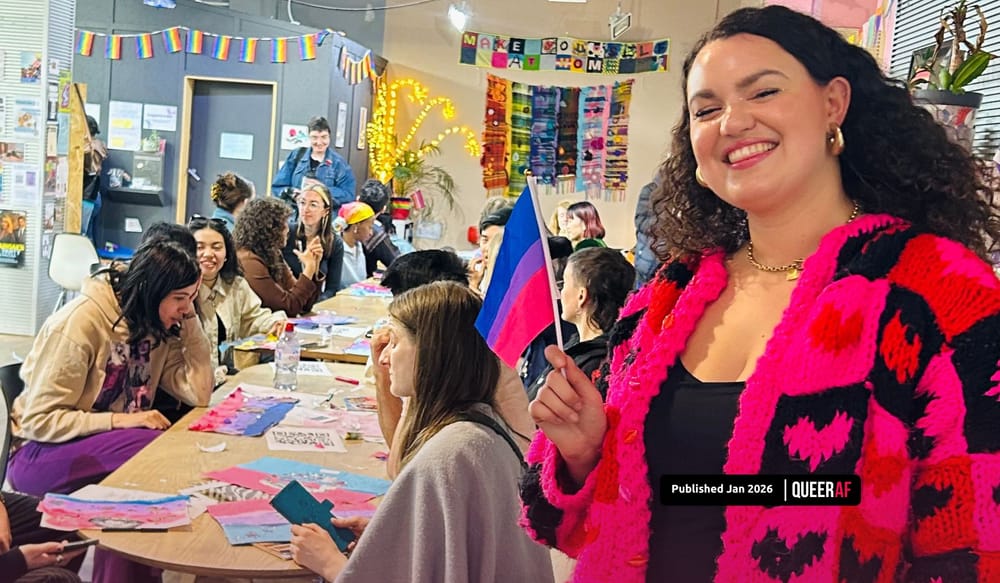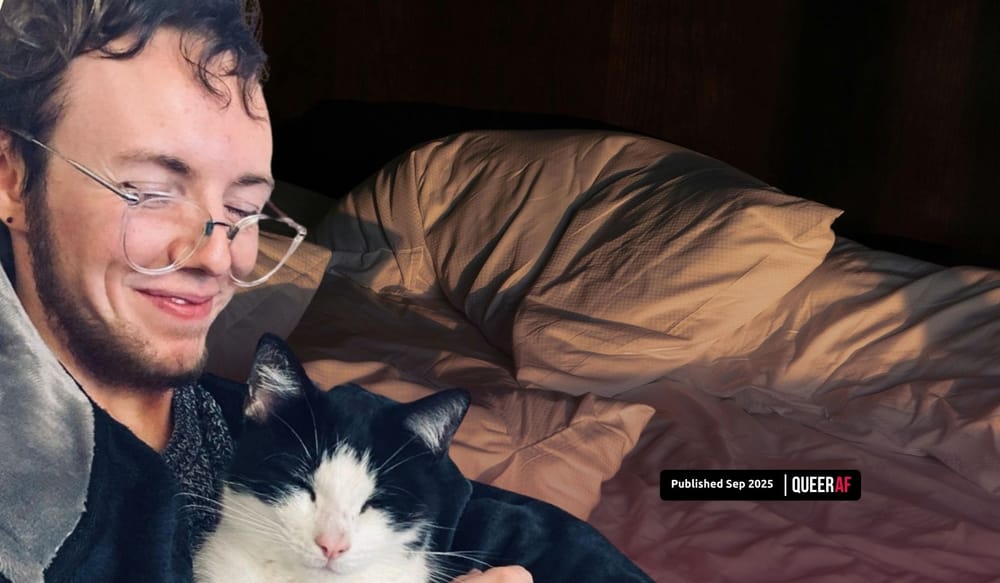
In March of this year, the UK government announced plans to ‘bolster the economy’ by cutting disability benefits by £5 billion. Labour leadership u-turned on the policy this week amid pressure from its own MPs. It now means the cuts will only affect new claimants.
Still, much like when the Cass Review into transgender children's gender identity services made the news almost exactly a year before, when these cuts were announced I felt completely dejected, hopeless and alone. I didn’t know how I was going to survive when it felt like no one was in my corner.
In particular, it made me reflect on how politicians frame these issues as singular, instead of recognising the reality that they intersect with many people’s experiences, in the same way that many of us are part of multiple marginalised communities at the same time. This approach is designed to divide us when we should be recognising the parallels in the ways we’re marginalised.
The news of the benefits cut reminded me of the horrible, dehumanising process of applying for Personal Independence Payment (PIP).
In order to apply for the benefit, you must dissect your life onto a page, diluting your very human experiences into boxes, that don’t acknowledge how different parts of your life intersect. There is one segment for your “Mental Health and Cognition” and another for “Physical Health”.
At the end of the forms, there is an equality and diversity monitoring section: more boxes about race and nationality, sexual orientation, gender, religion, socio-economic background and disability status.
It further confirms that your life, your very real, unique difficulties must be boiled down to a series of boxes to make the government’s job easier.
For me, these tick-boxes represent the societal and systemic approach to singular marginalised identity. It works on the assumption that our marginalised identities are few and separate. These pieces of paper and boxes continue to divide us and ostracise multiply marginalised communities.
I am Queer, Trans, Disabled, Neurodivergent, Working-Class and Dual-Nationality. I exist despite my inability to fit into boxes on pages or in society yet here I stand.
Multiple Marginalisation is more common than what society perceives. I use the term multiple marginalisation over intersectional due to the latter’s roots in the judicial system. I wish to refute the institution that so often mistreats marginalised people by using different language than they use themselves. I don’t use intersectional because I am a human, not a subject that sits in the centre of a multi-faceted Venn diagram.
Prior to finding language and community that supported me, I felt like I had to compartmentalise who I am. But no one should have to do that.
After all, every part of us interacts with each other. I am proud of every part of my identity. Ideally, I’d rather not have to describe it using this jargon at all, and just exist in my communities that understand without tick-boxes.
When there is an understanding that every part of our marginalised selves interacts and moulds to create our identity, we can feel stronger in ourselves and more aware of the broader issues in the systems we’re seeking to change.
We create an even larger community filled with unexpected connections that have existed the whole time. Together, we are stronger in the fight for justice for all marginalised people.
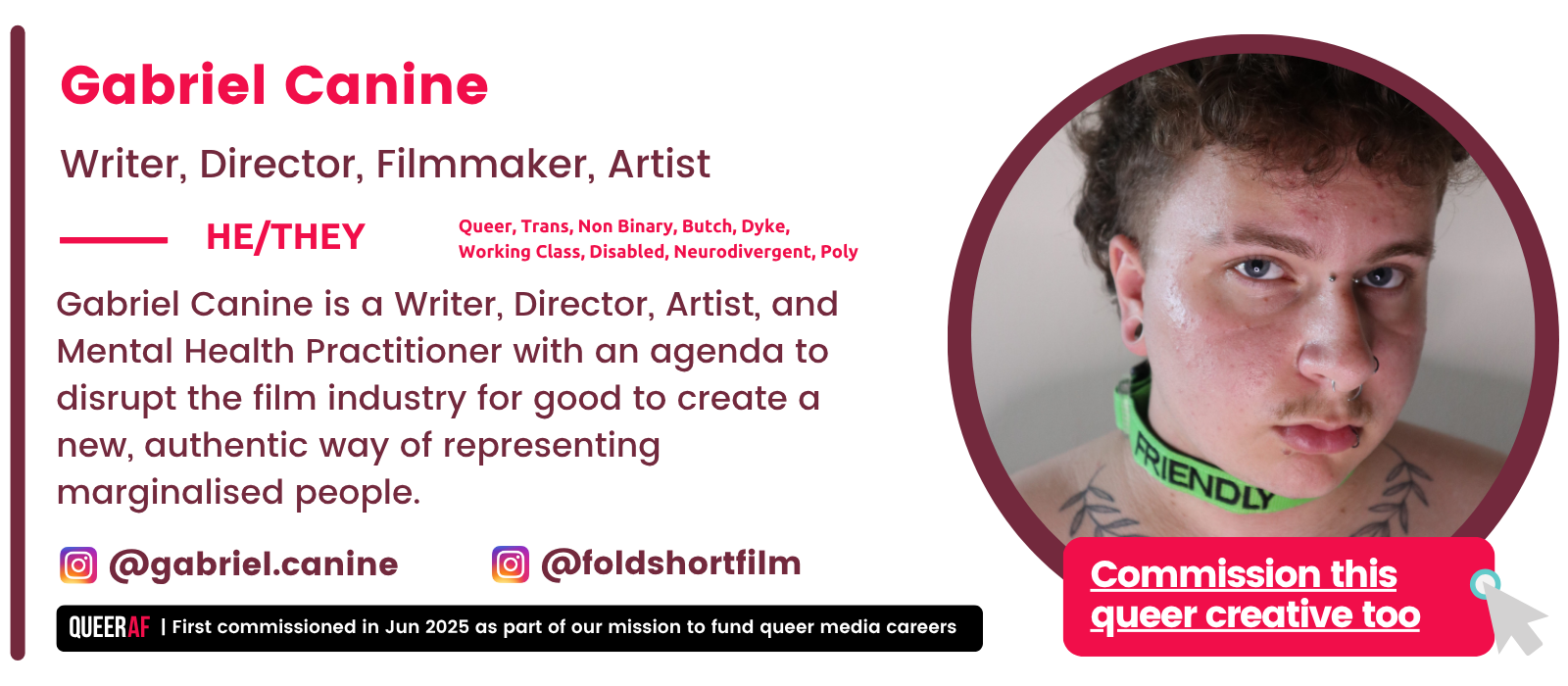
When Riley receives a life-changing surgery, his relationship dynamic changes completely. In the aftermath, the results of his surgery are revealed. Will the love of his life fold under the pressure of caring for him?
Gabriel is currently looking for funding for his short film, Fold, which dives deeper into the themes of his article. It will be created by an all-trans and majority-disabled cast and crew.
We support our writers to build media careers
"As someone that didn't go to University I often doubt myself as a capable communicator, especially as the first Director I worked for at the Guardian told me I'd never be eloquent enough if I didn't have a degree.
"But I can categorically say that the half-hour editing and feedback chat with Jamie Wareham has built my confidence and given me far more valuable advice. What a profoundly beautiful thing QueerAF are doing within news & media."
That's how one of our creatives, Ray Cooper said about our approach and support when they wrote their queer gaze article.
That's the power of our work; that's the power of our unique approach to journalism; that's what our memberships support.
Will you join the hundreds of QueerAF members who make our work to change the media, to change the country - happen?

